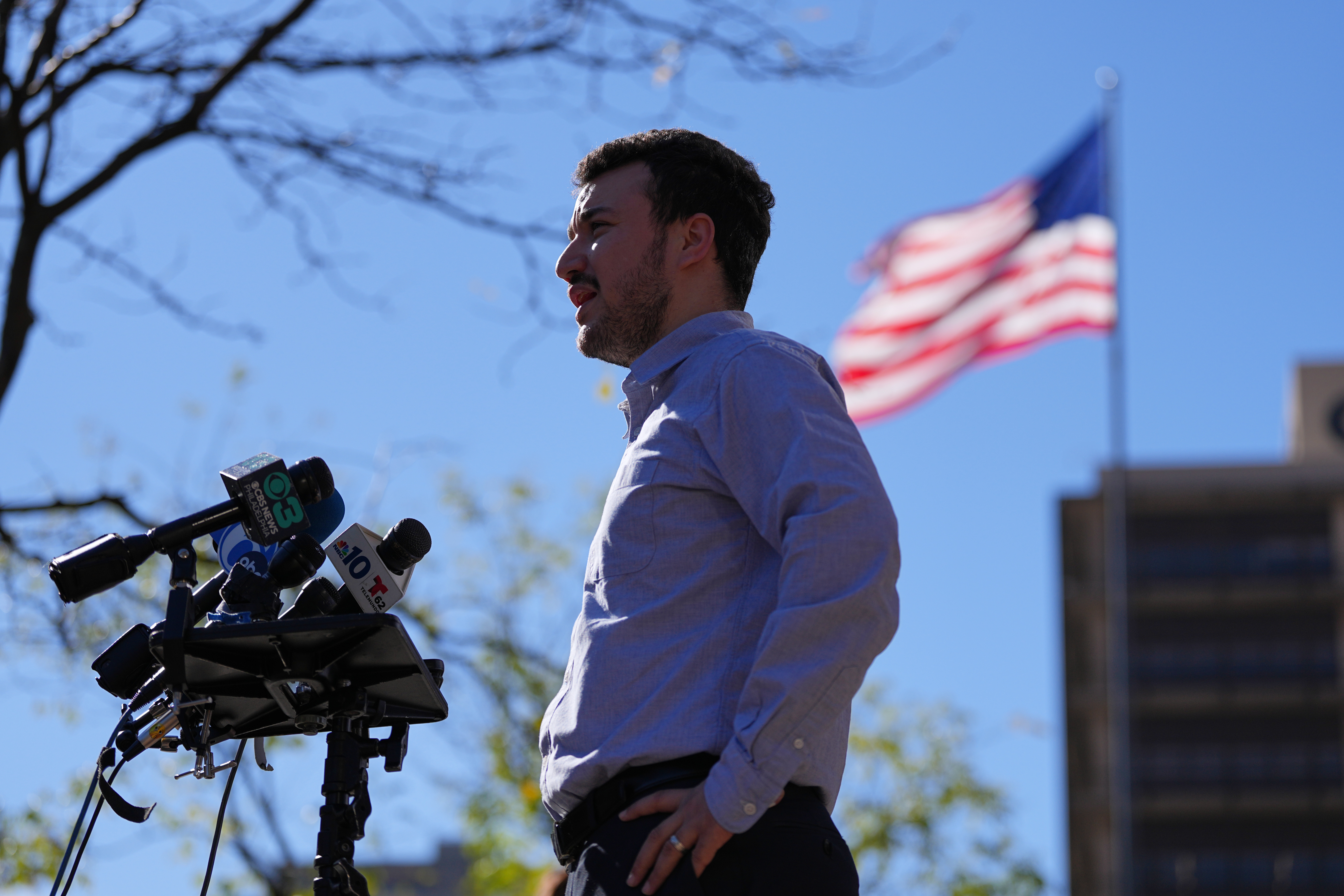Appeals court judges — including a Trump appointee — voice doubt over Trump’s bid to deport Mahmoud Khalil

A panel of federal appeals court judges appeared deeply skeptical Tuesday of the Trump administration’s effort to detain and deport pro-Palestinian activist Mahmoud Khalil using an obscure provision of immigration law.
A three-judge panel from the Philadelphia-based 3rd Circuit Court of Appeals heard arguments from government lawyers seeking to overturn a lower court’s order releasing Khalil, a legal permanent resident of the U.S., from detention in Louisiana and finding that the Trump administration’s application of the law was likely unconstitutional.
The panel consisted of Judge Thomas Hardiman, appointed by former President George W. Bush; Judge Stephanos Bibas, appointed by President Donald Trump; and Judge Arianna Freeman, appointed by former President Joe Biden.
Bibas, in particular, scoffed at an argument by a lawyer for the government that the lower-court judge, Michael Farbiarz, didn’t have jurisdiction over the case because Khalil’s lawyers hadn’t properly filed a petition for his release in the appropriate district. In the hours following his arrest on March 8, Khalil was moved several times over the course of a weekend, and his lawyers filed the petition in Manhattan based on inaccurate information provided by the government.
The government lawyer, Drew Ensign, suggested Khalil’s lawyers should have waited to file the petition.
“They’re dealing with a situation where, you know, immigrants have been spirited out of the country in a matter of a day or two,” Bibas said to Ensign. “Are they acting unreasonably?”
After Ensign began to answer, Bibas interrupted him, saying: “I’m asking, should we adopt a rule that allows the executive to remove someone from the country in 24 to 48 hours and say there’s no jurisdiction anywhere until the courts open on Monday, by which time he’s on a plane?”
Bibas continued: “If our rule says, wait until … the system is updated Monday morning, the executive might spirit the person out of the country over the weekend. Are you asking us to adopt a rule that says when there’s a lag in the database that’s all on their lawyers and then Monday morning — ‘Sayonara, sorry, he’s gone’?”
For more than three months earlier this year, Khalil was held in detention in Louisiana after the Trump administration arrested him, invoking a rarely used provision of immigration law that allows the government to deport any noncitizen — even a legal resident — if the secretary of State determines that the person’s continued presence harms U.S. foreign policy interests.
In June, Farbiarz, a Biden appointee, blocked the Trump administration from deporting Khalil on foreign policy grounds. Days later, the judge ordered Khalil’s release after determining that he was not a flight risk or danger to the community.
Farbiarz also ruled that continuing to detain Khalil while his immigration case proceeded would have impeded his First Amendment rights. Ensign challenged that finding at Tuesday’s hearing, but all three appeals court judges cast doubt on Ensign’s arguments.
Khalil’s lawyers, meanwhile, argued that Farbiarz had correctly blocked the Trump administration from using the foreign-policy provision. One judge, Hardiman, asked “why shouldn’t the government have the power to remove people from the country that are harmful to the country?”
“I think the answer is, it has many means to do so, but it can’t be based on lawful, protected speech, political — particularly core political — speech,” said Bobby Hodgson, a lawyer for Khalil. “And I think to find otherwise, and to find that Mr. Khalil cannot make out a First Amendment claim.”
Hardiman asked if the argument would be the same if it wasn’t core political speech, but instead “material support for terrorism.”
“I think that is a different analysis, and reasonably so,” Hodgson replied. “I think this is the exceptional case where it is about core political speech.”
Last month, an immigration judge in Louisiana ordered Khalil deported to Syria or Algeria based on another rationale the Trump administration tacked on after Khalil’s arrest in Manhattan: failing to disclose certain information, including all his past employment and membership in organizations, on his green card application.
Khalil’s lawyers have said they intend to appeal the deportation order.
Comments
Post a Comment